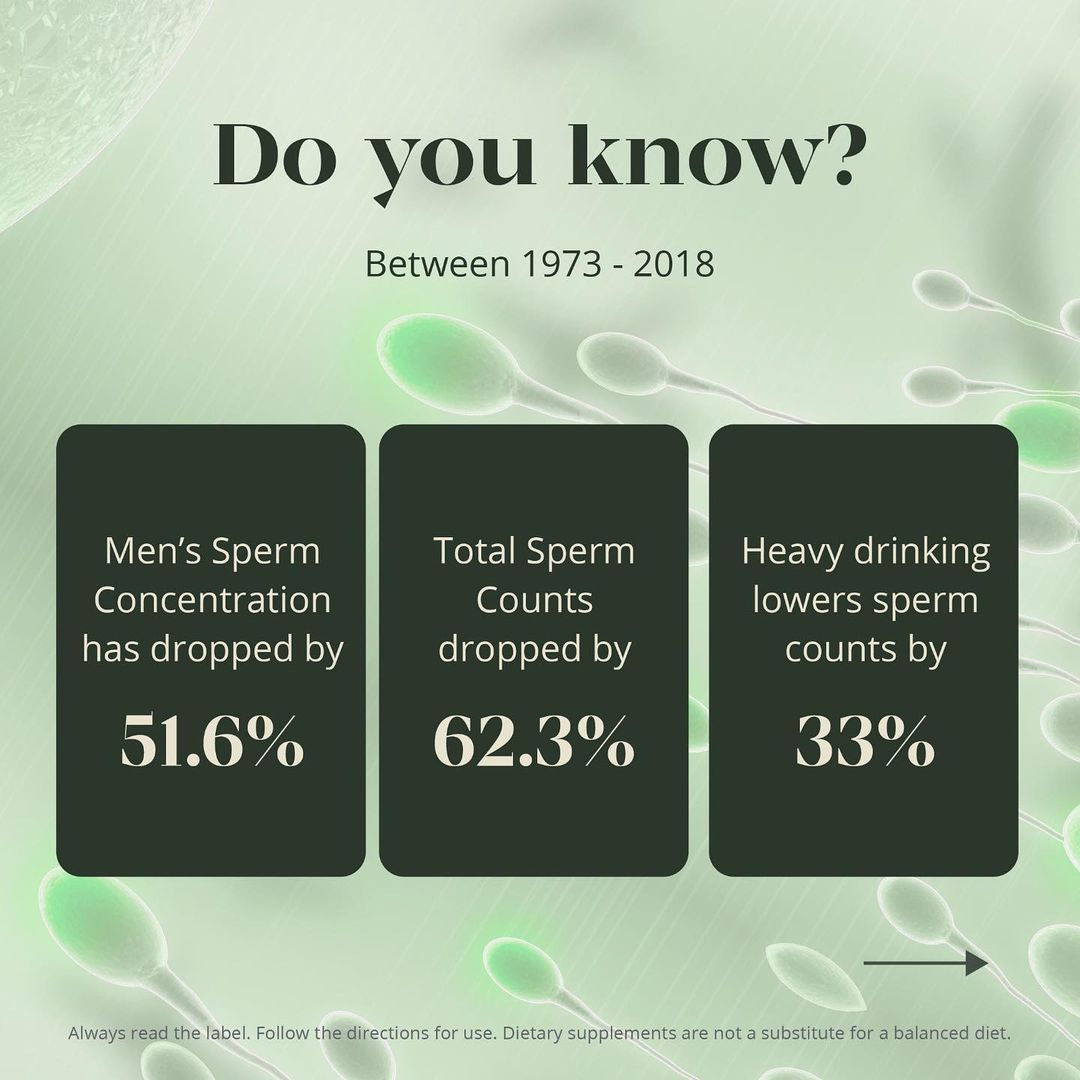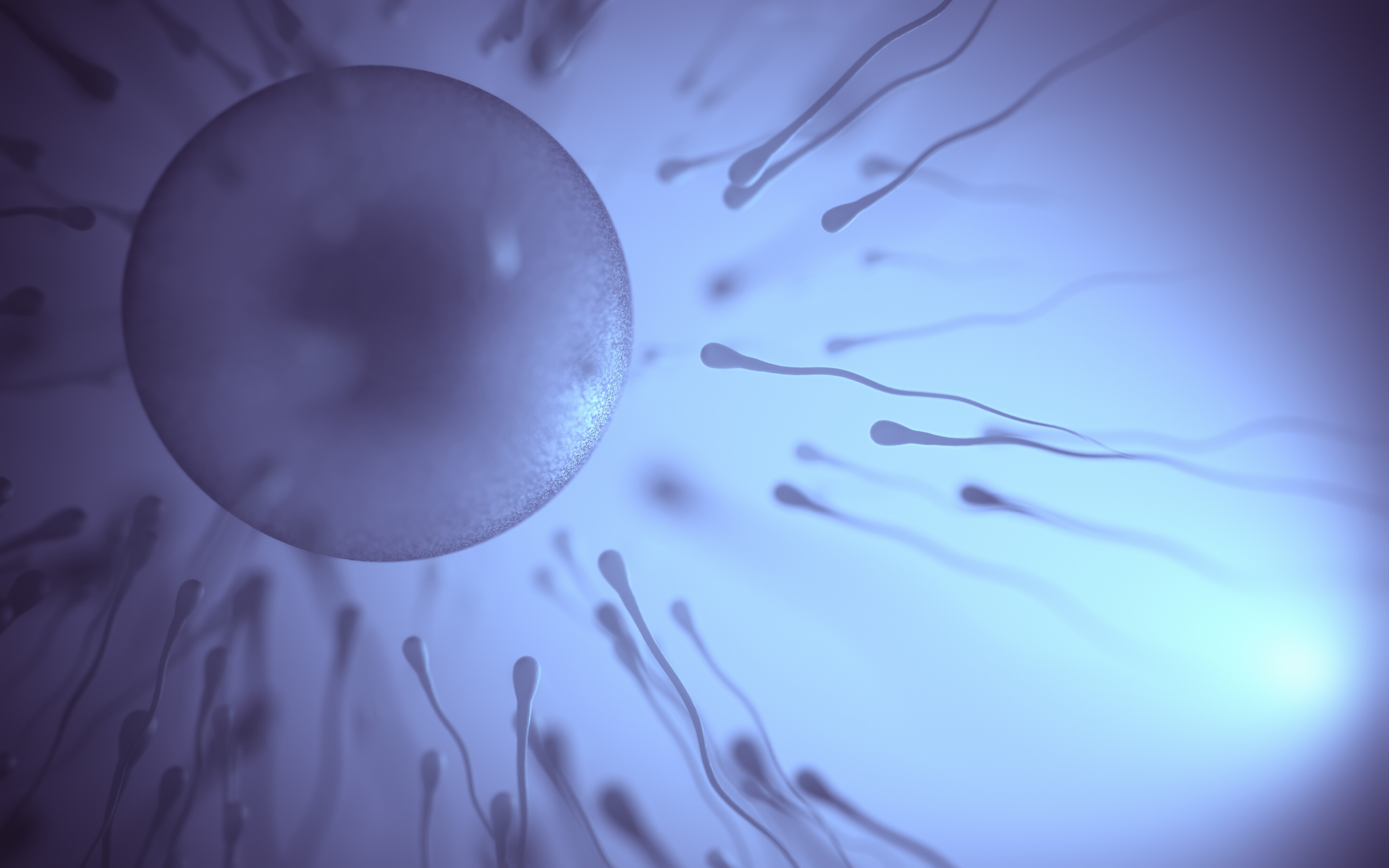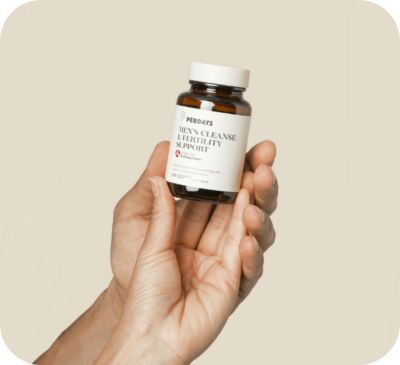Male Fertility in a Nutshell
- Preparing for conception is important for good fertility and healthy babies.
- Parental lifestyle factors can influence the health of future children.
- Male fertility and testosterone levels are negatively impacted by stress levels and dietary choices
- Male fertility can also be impacted by medications
- The herb KSM-66 Ashwagandha is clinically-proven to support sperm production, motility, and testosterone levels
- Toxins in the environment can impair male fertility
- Herbs such as silybum marianum, zingiber officinale, and Brassica oleracea can support the body’s natural detoxification processes
- Improving overall male health through exercise, dietary changes, and supplements can benefit future generations.
What Every Man Should Know About Male Fertility Before Trying To Have a Baby
By Gerald Quigley
These days most of us take healthy conception for granted. However, the reality is that for many couples it is not as to conceive as expected.
For men, it is now clinically proven that stress levels, environmental pollution, food selection, drug and alcohol consumption, medication use, and smoking (as well as many other factors) can play an important role in affecting overall male fertility.
Modern science can now explain how these factors impact overall male fertility via sperm production, sperm motility and testosterone levels. Fortunately, it has also demonstrated that improving male lifestyle and diet along with targeted supplementation has a measurable positive impact on sperm and liver health and testosterone.
How Men's Lifestyle & Diet Can Affect Male Fertility (& Your Future Baby)
Your Diet Has an Impact
Common lifestyle factors, especially in today’s 24-hour world, are often considered normal. On that basis alone, epigenetics (the study of changes in organisms caused by gene expression) show that in animal studies, a male diet can influence the health of future children, caused by changes in the male sperm before conception.
A study published in Molecular Cell, 2020 by Yoshida et al shows that metabolic changes in the next generation can be predicted by measuring epigenetic changes in the identified genes of paternal sperm cells. (1).
Consider Boxers over Tight Undies
Even the type of underwear worn can affect markers of testicular function. Mínguez-Alarcón et al found that boxer shorts wearers had a higher sperm concentration and total sperm count compared to men who wore regular underwear.(2)
How Some Herbs Can Support Male Fertility
Stress Can Cause Male Infertility
Stress has been reported as a causative factor for male infertility. This will come as no surprise to many of you. It has been known for a long time that the cortisol created by stress can prevent the male reproductive system from functioning normally.
In addition, stress can impact your immune system, allowing your body to become vulnerable to infection. For men, this can further impact testosterone production leading to a decline in sex drive, and can even cause erectile dysfunction or impotence.
Ashwagandha can Reduce Stress & Male Sexual Health
Fortunately, research by Mahdi et al shows that treatment with ashwagandha resulted in a decrease in stress, improved levels of anti-oxidants, and improved overall semen quality.(3)
In addition, Durg et al showed that ashwagandha improved semen volume, sperm concentration and sperm motility. It also found improved serum hormonal profile, oxidative biomarkers and antioxidants.(4)
Taking an Appropriate Dose of Ashwagandha Improves Male Fertility
In sum, herbal medicine in the form of KSM-66 Ashwagandha plays a clinically proven role in sperm production, sperm motility and in supporting testosterone levels. KSM-66 Ashwagandha is a high-potency root extract prepared by a process described by traditional Ayurveda healers and texts.
Can Environmental Toxins Affect Male Fertility?

Recent Studies have shown consistent declines in Male sperm counts, motility and overall testosterone levels.
It is likely that the introduction of complex chemicals into the environment over the last century is to blame. Possibly because our biological detoxification systems and not primed to deal with them.
Chemicals & Synthetic Elements are Everywhere
They can be found in fresh and processed foods, personal care and household cleaning products, workplace environments and many more. Some of these molecules are reproductive toxins, capable of impairing fertility and inducing abnormalities in a developing embryo.
The Importance of the Liver in Detoxification
Hence, detoxification is a useful process to remove these accumulated waste products, metabolites or chemical toxins, and minimize potential harm. Normal detoxification is performed principally through the liver, with elimination from the body through bile, bowel, kidney, lungs and sweat glands.:
Natural Ways To Support Liver Health & Male Fertility
Natural detoxification happens constantly. Currently though, these detoxification processes are overwhelmed by the ongoing ingestion, inhalation and exposure to multiple toxic substances.
3 Detoxifying Herbs
Silybum marianum, zingiber officinale and Brassica oleracea, are effective detoxifying herbs.
Silybum marianum has liver protective benefits, particularly because of its antioxidant mechanisms.(5) It is postulated that silybum marianum protects the liver by preventing the uptake of toxins and viruses through the stabilization of cell membranes, reducing the oxidative stress caused by the metabolism of toxins and reducing hepatic inflammation, fibrosis and aiding hepatic repair and regeneration (6).
Zingiber officinale also brings significant liver protective effects (7). The effect also seems to be mediated by an antioxidant mechanism which prevents a decline in antioxidant status.(8). Ninh Le et al studied Brassica oleracea L. var Italica as a potential food source for bioactive properties (9), finding high antioxidant activity.
Detoxification is Essential for Male Fertility
In men, detoxification is therefore essential for the role it plays in healthy conception. Clinically proven herbal ingredients offer liver protection in these times of environmental pollution and toxicity from other sources.
Whether trying to prevent or resolve fertility issues, improving your general health through exercise, dietary changes, proven supplements and herbs – is a gift to your future baby (and even future generations).
About Gerald Quigley
Gerald Quigley is a community Pharmacist, Master Herbalist, Media Health Commentator, and Author.
Improve Male Fertility and Support Conception
Perdays Preconception Men’s Cleanse and Fertility Support is specially formulated for men to support sperm health, testosterone levels, healthy liver function and the body’s natural detoxification processes.
References
- ATF7-Dependent Epigenetic Changes are Required for the Intergenerational Effect of a Paternal Low-Protein Diet. Molecular Cell, 2020;DO!:10/1016/j.molcel.2020.02.028
- Human Reproduction. Volume 33, Issue 9, September 2018, Pages 1749-1756. https:doi.org/10.1093/humrep/dey259
- Ashwagandha improves semen quality in stress-related male fertility. Animal study. GreenmedinfoiSept 29, 2009
- A review of Withania somnifera in male infertility. Durg, shivaram, Bavage Meta Analysis published Nov 14th 2018/
- Abenavoli, L. et al (2010) Milk thistle in liver disease: past, present, future. Phytother Res, 24, 1423-32
- Polyak S.J., et al (2010) identification io hepatoprotective flavonolignans from silymarin. Proc Natl Acad Sci USA, 1076, 5995-9
- Bhandari U et al. Antihepatotoxic activity of ginger ethanol extract in rats. Pharm Biol 41.1(2003) 68-71
- Mallikarjuna K et al. Ethanol toxicity: rehabilitation of hepatic antioxidant defense system with ginger. Fitoterapia79.3 (2008):174-178
- Broccoli (Brassica oleracea L. var Italica) sprouts as the Potential Food source for BioActive Properties: A Comprehensive Study on In Vitro Disease Models . Thanh Ninh Le et al. Foods. 2019 Nob 8(11):532
- American Psychological Association: Stress Effects on the Body. https://www.apa.org/topics/stress/body

